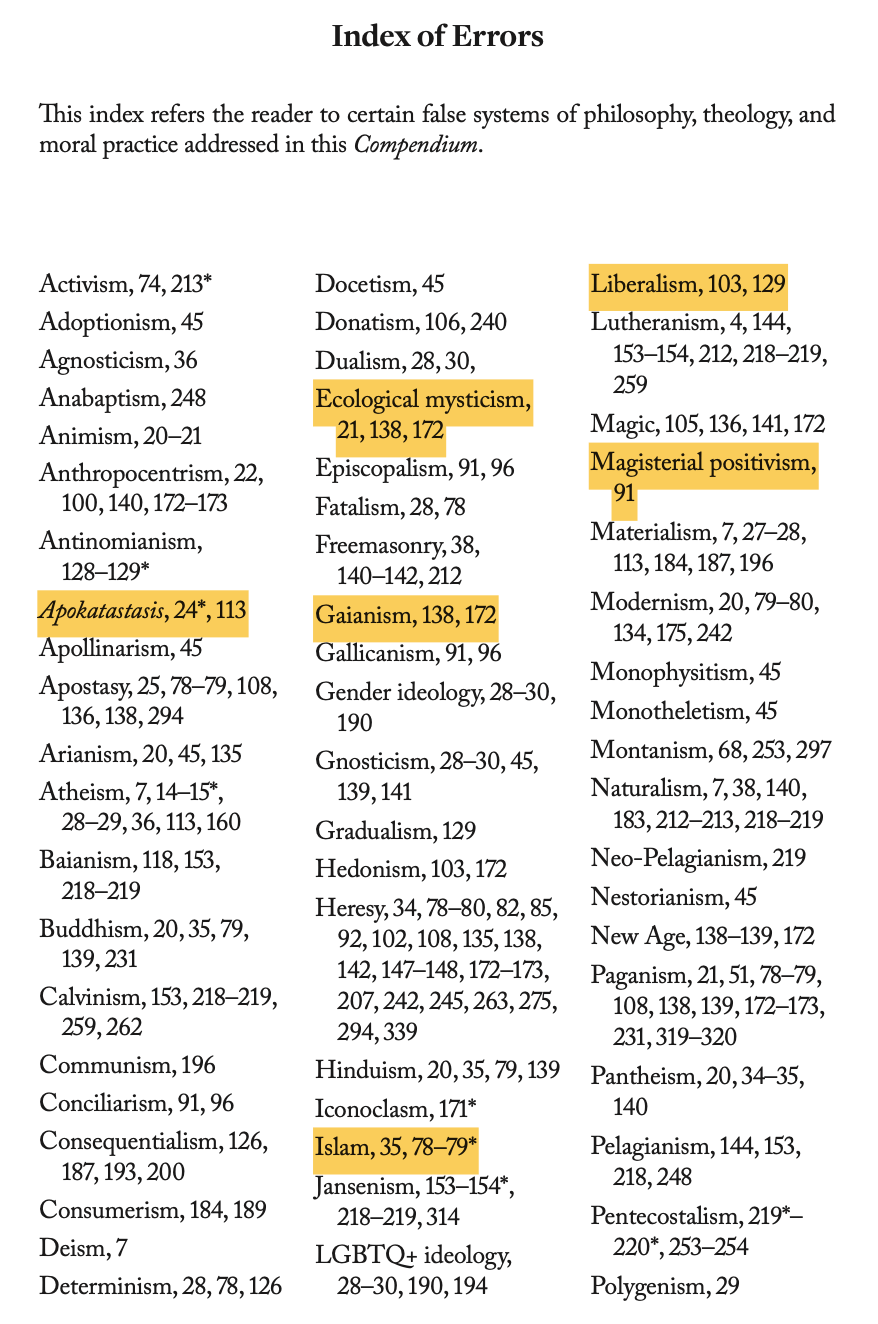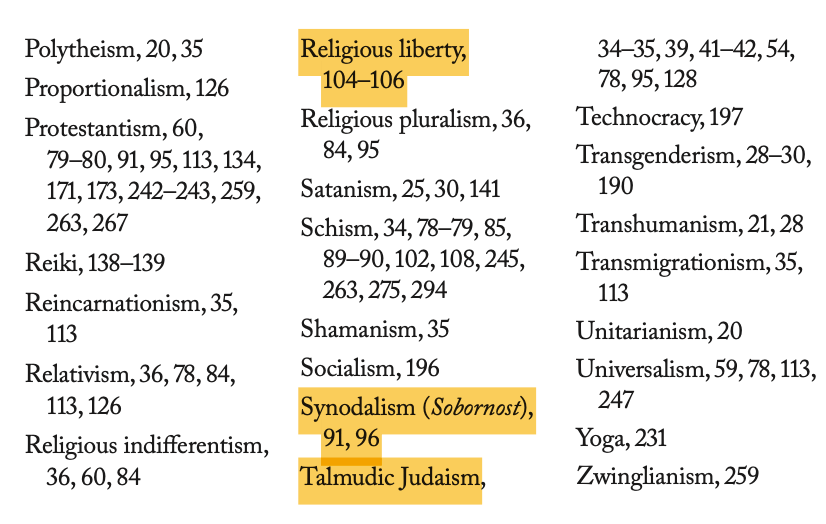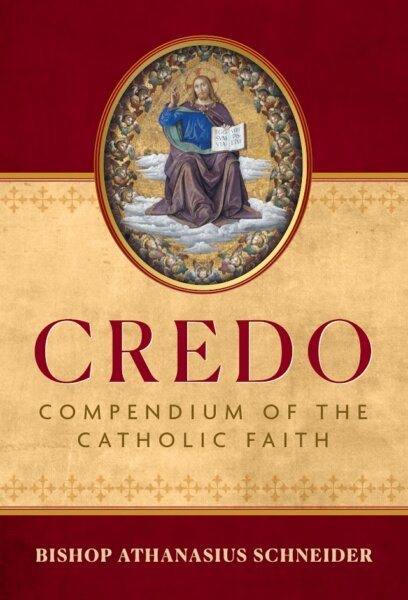If all our Bishops were as Catholic as His Lordship, there would be little to worry about except converting the world. Unfortunately, we have to expend energy fighting heretic 'shepherds'!
By Timothy Flanders
Dated on the feast of St. Athanasius, Bishop Athanasius Schneider has issued a formally canonical catechism as a part of his participation in the ordinary Magisterium of the Church. The Rome release was today.
This action is unprecedented for many decades since Vatican II. Yet bishops have the power, authority and also the duty to teach in participation with the Magisterium. As Lumen Gentium teaches:
Although the individual bishops do not enjoy the prerogative of infallibility, they nevertheless proclaim Christ’s doctrine infallibly whenever, even though dispersed through the world, but still maintaining the bond of communion among themselves and with the successor of Peter, and authentically teaching matters of faith and morals, they are in agreement on one position as definitively to be held (25).
This is not merely a bishop talking and commenting. This is a formal participation in the ordinary Magisterium of the Church. Whispers explains:
Credo relitigates every doctrinal deviation of Vatican II, and about every other error taught by clerics since then. This means that a Roman prelate has affirmed the traditional apostolic doctrine in a public, canonical, authoritative mode — indeed, in the very face of AntiChurch forces everywhere — and with episcopal support (emphasis in the original).
The local bishop governing the publisher Sophia, Bishop Peter Libasci, has issued his imprimatur to the Catechism.
As the work of Tradivox shows, it was common for individual bishops to issue their own catechisms for centuries – with their brother bishops in turn issuing their own imprimaturs. But due to the false spirit of Vatican II, this practice has been greatly curtailed. The last time it was done was Bishop Morrow’s My Catholic Faith, originally published in the 1950s. Nowadays Catholics refer in common vernacular to “the Catechism” (meaning the 1992 Catechism issued under John Paul II) as if there is only one universal Catechism, or only one catechism in general. Now due to the change by Pope Francis, this Catechism has now become the “New New New Catechism” (after the two editions under John Paul II).
Following the false spirit of Vatican I, the United States Bishops ordered a new edition of their own American catechism to reflect Pope Francis’s change, but they admitted that they did not understand what Pope Francis meant.
This is the perfect example of this false spirit, since it is literally a voluntarism without logos: it is papal positivism at its ugliest – the bishops, charged with promoting doctrine, promote a doctrine that has no meaning, at their own admission, solely because the Roman Pontiff willed it.
This is what Bishop Schneider calls “Magisterial Positivism.”
What does this new canonical catechism say? First, let’s turn to the “index of Errors” listed in the back:


Let’s turn to number 653 which defines the error “Magisterial Positivism.”
653. What are the most common errors about authority in the Church?
Various forms of conciliarism, limiting papal authority by the authority of bishops gathered in council; 2. Gallicanism or Statism, subjecting the authority of pope and bishops to the civil power; 3. Magisterial positivism, receiving every word of a living pope or bishop as inherently true, good, infallible, and necessary to obey; 4. Protestantism, viewing private judgment as an infallible authority in matters of faith and morals. (emphasis mine)
Now let’s turn to number 513 and see what Credo says about the disputed teaching about the death penalty.
Legitimate Killing
513. May a man ever kill legitimately, without being guilty of the sin of murder?
Yes. Through his own voluntary actions, an individual may waive his right to life when: 1. The common good of social order is justly enforced by lawful authorities, as in the execution of criminals; 2. Legitimate defense is undertaken, as in just warfare or self-defense.
514. When does society have the right to inflict the death penalty?
The lawfully constituted public authority may put proven criminals to death for the most serious crimes when this is necessary to maintain social order in repairing injustice, protecting the innocent, deterring further crime, and summoning the criminal to true repentance and atonement.
515. From whom do public authorities hold the right to execute criminals?
From God Himself, the sole master of life and death, whose justice the public authorities represent in society: “The authority does not bear the sword in vain” (Rom 13:4).
Here the Bishop is repeating what has been universally held by all the faithful until our time. This catechetical power has been the practice of bishops for centuries, and we are witnessing the return of this practice now, and the beginning of the end of the era of hyperüberultramontanism, or as His Excellency terms it, “Magisterial Positivism.” Pope Francis is inadvertently developing the doctrine of the Papacy, and this new catechism is helping to restore the office of bishop. Thanks be to God!


You were referring to Vatican II but always mentions Vatican I.... CAN YOU CORRECT your typo
ReplyDeleteI corrected it here on the blog, but the link is to the original which I have no control over.
Delete